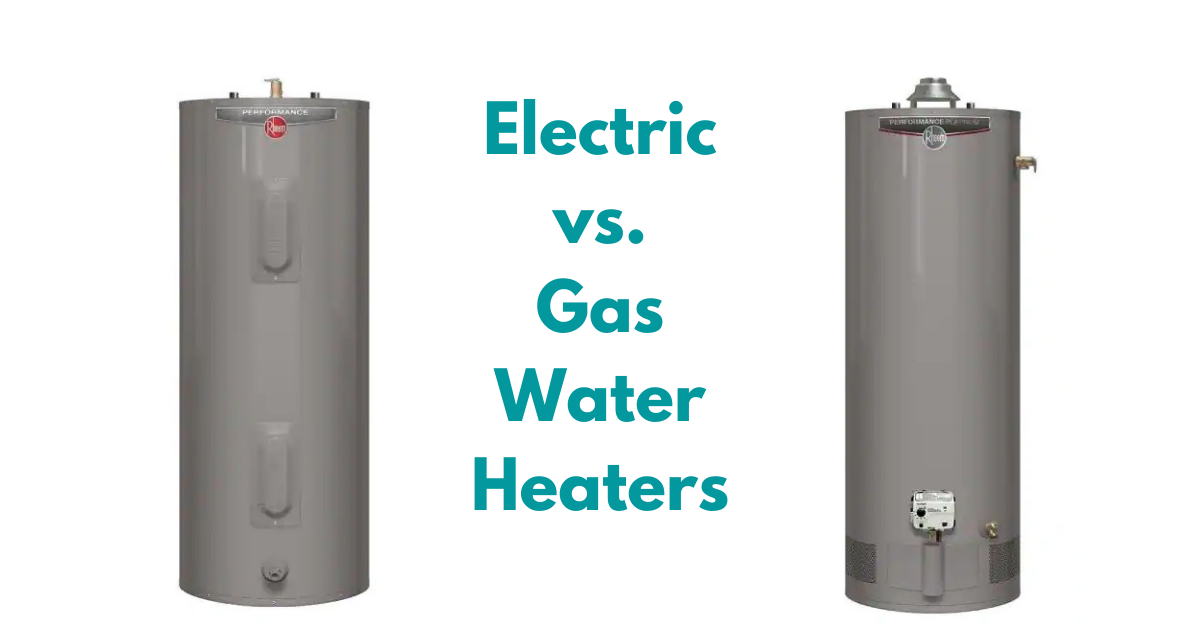
Electric and gas water heaters differ in cost, safety, lifespan, and the way they heat water. Since they each have benefits and drawbacks, choosing between them may not be as simple as some may think. While gas water heaters are more popular, electric water heaters offer some key advantages. Below is an overview of the pros and cons of each to help you select the water heater that best meets the needs of your home.
-
Cost
Choosing the right water heater may have a considerable impact on your energy bills. The cost of purchasing a gas water heater can be significantly more expensive, sometimes even double the price of an electric heater. Most electric water heats cost around $500 to $600 while gas water heaters cost between $600 and $800. While electric water heaters are less expensive upfront, heating your water with electricity is more expensive than heating with natural gas. So unless you’re able to produce electricity naturally (with solar panels on your roof, for example) then a gas water heater will likely be less costly in the long run.
-
Installation
Both electric water heaters and gas water heaters are straightforward to install. Installing an electric water heater will involve some basic plumbing and electrical work. The whole job should only take a few hours and could even be done without the help of a professional. Don’t forget that installing any kind of water heater will usually require acquiring a permit and an inspection. Since installing a gas water heater involves soldering, working with natural gas, and knowledge of local installation codes, it’s best to call in a licensed electrician or plumber. Keep in mind that there’s some extra work required if you’re switching from an electric unit to a gas water heater. A new vent will need to be created to connect the gas lines to the unit, which will require cutting or drilling into the side of the home.
-
Environmental Impact
Both types of water heaters have about the same impact on the environment. Some say that electric water heaters are slightly more energy-efficient than gas water heaters (although they heat the water more slowly than gas water heaters). The main issue is the power source: generally speaking, the production of electricity leaves a bigger footprint than gas, unless it’s made with a renewable resource such as wind or solar power. The bottom line is that the difference in environmental impact between the two types of heaters is not that big.
-
Safety
One inherent advantage of electric water heaters is safety. Gas-powered appliances may carry a slight risk for leaks or encounter complications with the gas line, burner, or pilot light. It’s wise to have a carbon monoxide monitor installed in your home if your water heater is fueled by gas. Electric water heaters don’t carry these risks and are nearly free of any significant issues. The best way to ensure safety for both electric and gas water heaters is through proper maintenance.
-
Maintenance
Gas and electric water heaters have a similar maintenance routine. Both should be flushed out once per year to prevent rust and corrosion. Flushing will also help extend efficiency and safety. Some say that electric water heaters can last two to three years longer than gas water heaters.
Having a reliable water heater is essential to the functionality and comfort of your home. If you’re considering purchasing an electric water heater for its safety, lower upfront cost, longer lifespan, or efficiency, keep in mind that you may end up with higher operating costs. Have questions about water heater options or other energy efficiency needs? Give us a call. We offer a complete list of services and are happy to guide and educate you to make the best decision for your home and lifestyle.

